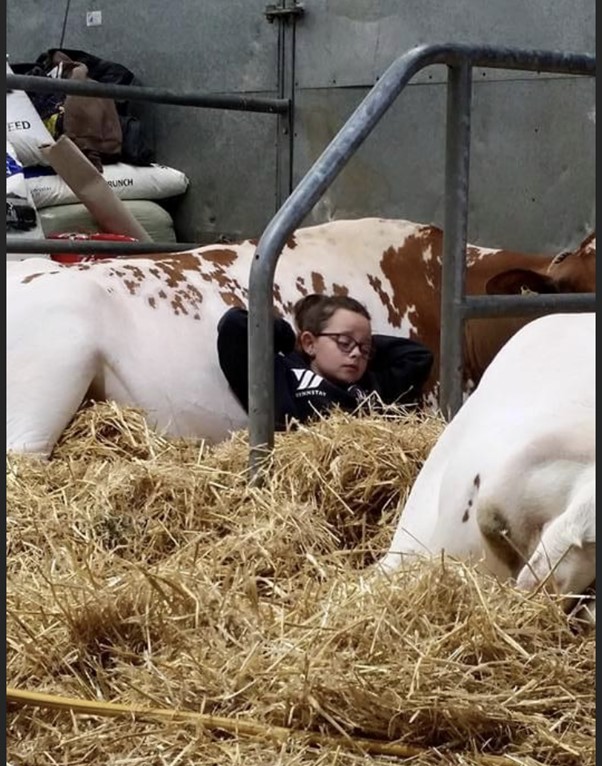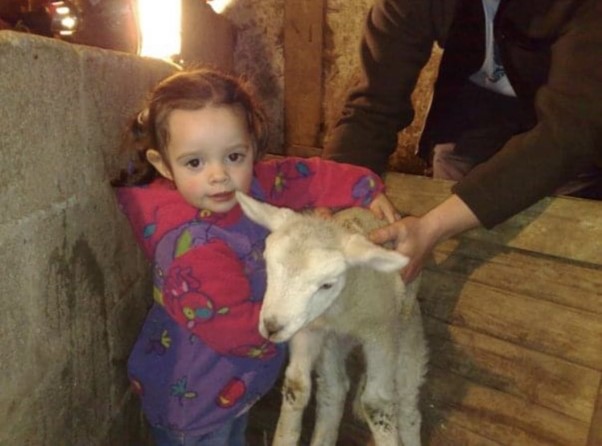The importance of the agricultural sector for the Welsh language.
Hi! I'm Elliw, and I've just finished year 13 at Ysgol Uwchradd Bodedern.I enjoyed the opportunities I had being a school ambassador for the Coleg Cymraeg.
I grew up on a dairy farm, and as I now attend national agricultural events, I am increasingly aware of the importance of the agricultural sector for the Welsh language. And therefore, I want to present you with 3 points why I believe that the agricultural sector is of vital importance in keeping the Welsh language alive in rural Wales.
- I represent Ynys Môn at meetings of the Young Farmers Clubs (YFC) Wales Youth Forum which is coordinated under the NFYFC (National Federation of Young Farmers' Clubs), which operates throughout England and Wales. As a member of a national committee, I realise that the input of Wales YFC to the NFYFC is just as important as any other country's input, and that the Welsh language in rural Wales fits hand in glove with Wales YFC. This is one of the few youth organisations across Wales that works with the rest of the UK and even further afield, and ensures a platform for the Welsh language as well as demonstrating the importance of Welsh to Wales and its people.
2. Welsh farmers are key promoters and defenders of Welsh culture and heritage and the Welsh language, with the agricultural industry having the highest proportion of Welsh speakers in any sector. As Welsh farmers continue to maintain the Welsh landscape, they also continue to maintain cultural traditions, preserving our heritage and sense of place for future generations. One of these traditions that gives Welsh people a sense of purpose, identity and belonging is music, along with singing and choirs. A strong cultural heritage allows Wales to shine on the world stage, it is close to the heart of Welsh people, and there is no stronger cultural representation of Wales than a male voice choir. Many of these groups include a strong representation from the Welsh-speaking farming industry, keeping Welsh traditions alive and kicking. This factor involving Welsh farmers contributes to a vibrant Welsh culture and ensures that the Welsh language flourishes in rural Wales.
3. The third point, and the most important point in terms of the future of the Welsh language in my opinion, is the number of jobs that the agricultural sector provides. There is huge concern about the number of jobs available to people in Wales, especially in rural areas, and in my opinion, the agricultural sector is one of the strongest sectors in terms of providing jobs throughout the year.
What effect does this have on the Welsh language?
Well, keeping young people in Wales is an incredibly important step because of the long-term effects. If these
individuals can be attracted to stay in Wales in the near future through the provision of jobs, they are likely to
settle here and start a family and create a Welsh-language home area. Their children will want to attend Welsh
medium schools and complete their education through the medium of Welsh. We need to acknowledge that young
people are the future of the Welsh language, and if we fail to keep them here, the number of Welsh speakers will
decrease significantly.
According to the Iaith y Pridd report, around 43% of the people employed in agriculture speak Welsh, which is
greater than any other industry in Wales! Is this not solid evidence that the future of the Welsh language in rural
Wales is dependent upon the agricultural sector?
The agricultural sector is of vital importance in keeping the Welsh language alive in rural Wales.


